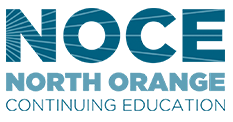
Financial aid (may be available)

Financial aid (may be available)

Financial aid (may be available)

Financial aid (may be available)
No cost info

$220 to start
$440 total

No cost info
$3,550 total
Financial aid (may be available)
OPTI Medical Systems supports the Online Quality Assurance Program (QAP) to add value to your OPTI CCA-TS2 analyzer. Online QAP facilitates the evaluation of quality control (QC) data with that of your peers for trends and shifts. Do not miss out on these valuable services that OPTI Medical provides OPTI analyzer users at no additional charge.
No cost info
The Graduate Certificate in Quality Assurance Compliance provides an in-depth knowledge of the global regulatory and compliance requirements for the development, marketing approval, and clinical utilization of biomedical products in today’s dynamic global healthcare environment.
No cost info
This program is designed for the chemist, bio-chemist or biologist in the pharmaceutical and biologic industry new to quality assurance and control, and is beneficial to senior year undergraduates and graduate students (using concurrent enrollment) interested in a career in QA/QC.
The program focuses on the quality requirements for the production and control of biologics and drugs, and the differences between quality control and quality assurance and their interaction with manufacturing. It highlights the importance of implementing and maintaining a quality system during the early stages of drug development, including the plethora of documents and controls necessary to make such a system effective. Guidelines and regulations from the FDA and the California State food and drug branch regulate the production of drug products. Quality Assurance (QA) monitors the manufacturer's compliance to these guidelines and regulations.
Instruction covers how to write, issue and control SOPs; manufacturing directions; and how to review and archive a batch history and other relevant documents. Emphasis is placed on conducting inspections and vendor audits for compliance to cGMPs to include contract manufacturers, bulk pharmaceutical chemical manufacturers and contract test laboratories. The program covers cGLPs and their applications to audits of facilities that provide toxicological services. Details on compiling, writing and archiving audit reports is provided.
No cost info
Quality assurance training helps applicants for understanding the basic concepts of information technology and software testing which help them excel as Quality Assurance (QA) specialists. The quality assurance course also covers physical products in determining defects in manufactured products and preventing them, pre-production, SDLC-Software Development Life Cycle, Production Environment vs Sandbox Environment, Mantis Bug Tracker, and many more. During the QA online training, you will learn how to decode the application of dynamic and static techniques, conduct walk-thoughts and audits, create a quality analysis, perform boundary value analysis, and test plan hands-on through this Quality assurance certification training.
No cost info
Mount St. Mary’s University is home to Maryland’s only certificate in quality assurance and regulatory science (QA/RS). The fully online program prepares you to lead your company through the efficient delivery of high-quality products within a competitive market.
No cost info
Are you interested in pursuing a career in Quality Assurance? Quality Assurance (QA) professionals play a crucial role in ensuring that products and processes meet the highest standards of quality. If you're located in Minneapolis and looking for Quality Assurance classes, you're in luck! In this blog post, we'll explore what Quality Assurance is, the training requirements, what to look for in a class, what to expect from the day-to-day class, the certification process, how to find related jobs, and other classes you can take after becoming a Quality Assurance professional.

Quality Assurance is a field that focuses on ensuring the quality of products and processes. QA professionals are responsible for developing and implementing quality control systems, conducting inspections and tests, and identifying and resolving quality issues. They work in a variety of industries, including manufacturing, healthcare, technology, and more.
Quality Assurance is a systematic approach to ensuring that products and processes meet specified requirements. It involves the development and implementation of quality control systems, as well as the monitoring and evaluation of these systems to ensure they are effective. QA professionals are responsible for preventing defects and ensuring that products and processes meet the highest standards of quality.
To become a Quality Assurance professional, it is recommended to have a strong background in science, engineering, or a related field. While a bachelor's degree is not always required, it can be beneficial for career advancement. Additionally, some employers may require or prefer candidates with professional certifications in Quality Assurance.
When searching for Quality Assurance classes, there are several factors to consider to ensure you find the right program for you:
Accreditation: Look for classes that are accredited by reputable organizations or institutions. Accreditation ensures that the program meets certain quality standards and that the curriculum is up-to-date and relevant.
Curriculum: Review the curriculum of the class to ensure it covers all the necessary topics and skills required for a career in Quality Assurance. Look for classes that offer hands-on training and practical experience.
Instructor Qualifications: Research the qualifications and experience of the instructors who will be teaching the class. It's important to learn from professionals who have real-world experience in the field.
Class Format: Consider the format of the class, whether it is in-person, online, or a combination of both. Choose a format that suits your learning style and preferences.
Class Size: Smaller class sizes often provide more personalized attention and opportunities for interaction with instructors and classmates.
Quality Assurance classes typically involve a combination of lectures, hands-on training, and practical exercises. Students will learn about quality control systems, inspection techniques, statistical analysis, and quality improvement methods. They will also gain practical skills in conducting tests, analyzing data, and identifying and resolving quality issues.
Obtaining a professional certification in Quality Assurance can enhance your career prospects and demonstrate your expertise in the field. While certifications are not always required, they can be preferred by employers. The certification process typically involves meeting certain education and experience requirements, as well as passing a certification exam. Some reputable certifications in Quality Assurance include the Certified Quality Auditor (CQA) and the Certified Quality Engineer (CQE) certifications.
After completing your Quality Assurance training, you may be wondering how to find related job opportunities. Here are some tips to help you in your job search:
Online Job Boards: Utilize online job boards such as Indeed, LinkedIn, and Monster to search for Quality Assurance job openings in your area.
Networking: Network with professionals in the industry through industry events, career fairs, and online platforms such as LinkedIn. Networking can often lead to job opportunities or valuable connections.
Professional Associations: Join professional associations related to Quality Assurance, such as the American Society for Quality (ASQ). These associations often have job boards and networking opportunities specifically for their members.
Company Websites: Visit the websites of companies you are interested in working for. Many companies post job openings on their websites before advertising them elsewhere.
Once you have become a certified Quality Assurance professional, there are several other classes you can consider to further enhance your skills and expand your career opportunities. Some of these classes include:
Six Sigma: Six Sigma is a methodology that focuses on improving processes and reducing defects. Six Sigma training can be beneficial for Quality Assurance professionals looking to further develop their problem-solving and process improvement skills.
Lean Manufacturing: Lean Manufacturing is a systematic approach to eliminating waste and improving efficiency in manufacturing processes. This class can be valuable for Quality Assurance professionals working in manufacturing industries.
Project Management: Project management skills are highly valuable in many industries, including Quality Assurance. Taking a project management class can help you develop the skills needed to successfully manage and coordinate quality improvement projects.
Quality Assurance is a rewarding and in-demand field with a wide range of career opportunities. By taking Quality Assurance classes and obtaining professional certifications, you can position yourself for success in this field. Remember to consider factors such as accreditation, curriculum, instructor qualifications, class format, and class size when choosing a Quality Assurance class. And don't forget to explore other classes and certifications that can further enhance your skills and career prospects.
If you're ready to start your journey in Quality Assurance, be sure to visit Dreambound. Dreambound is the largest platform for students to find vocational training programs, including Quality Assurance classes. Their mission is to provide all the information students need to find the perfect class and launch their careers.
Dreambound has written many guides to help you understand what it takes to get this certification. If you're curious about the process or requirements in other states, check out our other guides below:
Contemplating a change in your career path? Dreambound has written many comprehensive guides to aid you in making well-informed decisions.
Dreambound's platform allows prospective students to find the right educational program for them through searching, filtering, and connecting with our extensive selection of career & technical education partners.
Dreambound has over 70 programs across healthcare, technology, business, and industrial trades. This includes programs such as Medical Billing, Cybersecurity, and welding.
Some of our schools offer financial aid for those who qualify. Many others offer payment plans, where you can pay the cost of class over time.
Yes, Dreambound offers many online programs. On Dreambound's search, you can filter by online, in-person, and hybrid (part online, part in-person).
Dreambound is completely free for you to use! We are supported by schools and organizations who pay to advertise on our website, so we can offer all of our career resources for free.